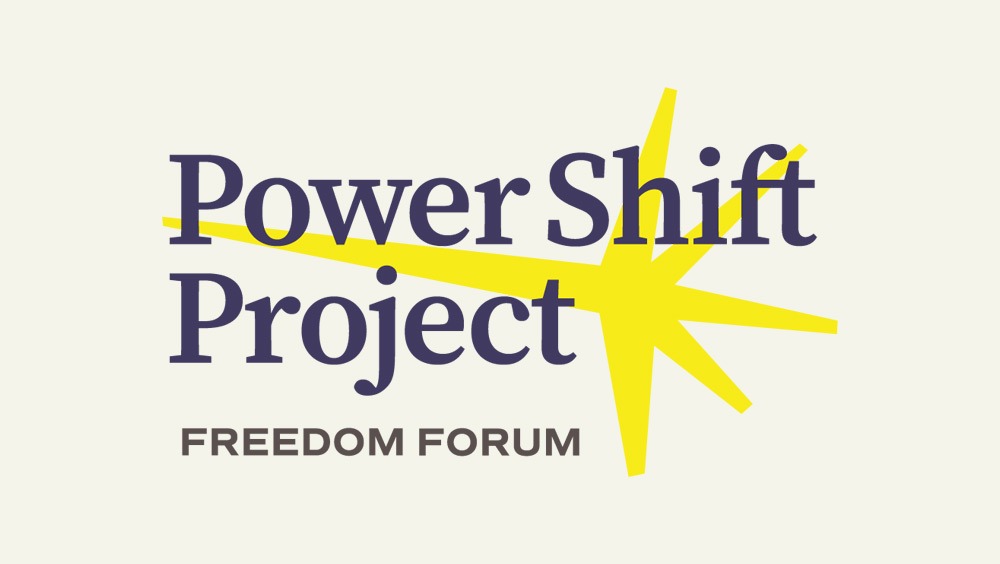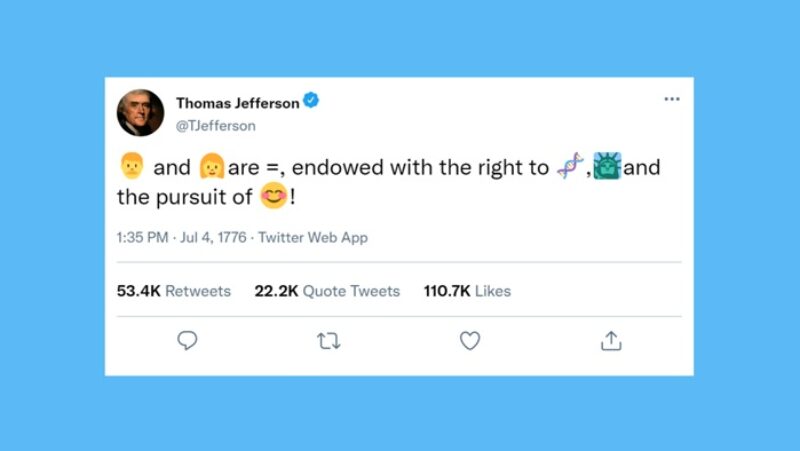Power Shift Training Improves Newsroom Culture – and Coverage

Newsrooms and classrooms that develop cultures designed to promote civility and opportunity for all and to end harassment are discovering a powerful benefit: Their journalism is better, too.
That’s according to a listening session that drew 92 Power Shift Project trainers and advisory board members to a Zoom conversation the Freedom Forum hosted on Jan. 25 to kick off 2022's Workplace Integrity Training and Do You Qualify as an Ally? sessions.
The Freedom Forum’s Power Shift Project began in 2018 in the aftermath of #MeToo reports that exposed misconduct in some of the country’s most prominent newsrooms. To date, more than 400 people from media organizations and journalism schools have taken its Workplace Integrity training. The free training shows newsroom and classroom leaders how to teach the curriculum so they can take it home and share it with their colleagues and students.
By improving the atmosphere and opportunities in newsrooms and media classrooms, Power Shift hopes to create lasting change in the quality and future of journalism.
And users and viewers are noticing the difference. Sue Ramsett, vice president and general manager at KWQC in Davenport, Iowa, said her newsroom’s commitment to diversity is evidenced in the newscasts. “We hear from our community ‘I see what you are doing! We like what you are doing.’ The importance of diversity and inclusion is no longer just a program we’re teaching. It’s who we are.”
Student journalists at Southeast Missouri State University were eager to receive Workplace Integrity training, and it’s paying off in the stories they produce, said Tamara Zellars Buck, chair of the school’s department of mass media. “Their coverage is richer and much more thoughtful. I love listening to them debate about issues of equity and inclusion as they are … putting together the stories they cover.”
The insights echo findings of a 2020 Pew Research Center survey that found people who feel represented and understood by their news sources are more supportive of the news media. Coming during a time when trust in journalists is low, the Power Shift Project offers hope for the future of the industry.
“With every passing day, the importance of building inclusive workplace cultures is reinforced. What we’ve dealt with over the past couple of years with the pandemic, with the racial reckoning, Power Shift and its principles have really been ahead of their time.” – Mizell Stewart III, vice president, News Performance, Talent and Partnerships, Gannett/USA TODAY Network
At Southeast Missouri, students embraced the cultural aspects of the training so much that they left their goals on a classroom whiteboard all year.
NPR opened the training to its entire staff. Twenty-six people signed on to be Workplace Integrity trainers, said learning and development coordinator Andrea Mares. The in-house trainers come from all parts of the organization and work in teams to lead the Workplace Integrity workshops. On request, they customize the training to emphasize issues of importance to the employees they’re training — from microaggressions to generational differences to respect.
For Fareed Mostoufi, associate director of education and DEI lead at the Pulitzer Center, “Having staff be the trainers really shifted the sense of responsibility. … We were holding ourselves accountable to everything we said and did.”
Jill Williams, deputy editor for features at the Milwaukee Journal Sentinel, said the training becomes a “part of your personal toolkit.” The pandemic news cycle caused her news organization to hit pause on their training, but people still approach her saying, “I remember you talking about this in Power Shift” or “I’m uncomfortable. Can you help me navigate this?”
The trainers were often surprised at the vulnerabilities co-workers shared during the training.
Said Ramsett, “One of the important things about this program is creating that safe space for people to talk about difficult things. But you have to be ready to listen. And that can be really painful.”
Stephanie Hedrick, general manager of KTTC in Rochester, Minn., said the training spurred conversations with people who have experienced incivility and others who are dealing with the guilt of perpetrating it.
Gannett’s Jean Hodges, senior director of news culture and communication, said one training participant described himself as a bully. “He spoke so frankly about the fact that he’d never seen life from a different perspective, really learning empathy from this process.”
The Power Shift trainers say there’s still work to be done to improve newsroom culture and the coverage that is produced:
- Young journalists, particularly young managers, are hungry for leadership training that can help them with confidence and skills in leading more senior employees.
- The mental health impact of covering the pandemic amid an already stressful news cycle needs to be addressed. “A lot of people are getting out of the business because it’s just too much,” said Kim Voet, news director of Detroit’s WDIV-TV.
- Interns and younger staffers are often better versed in the language of diversity, equity and inclusion than older staffers and may need training adapted to their knowledge.
- Hybrid newsrooms and classrooms present challenges to being inclusive, and sometimes, different avenues for harassment and misbehavior.
- Some colleges see any training about race as the equivalent of the controversial “critical race theory” and ban such conversations.
The Power Shift Project is working to adapt its 2022 training to answer the challenges the trainers presented. Already in the works for later in the year, says Jill Geisler, Freedom Forum Fellow in Women’s Leadership, is a series of Inclusive Leadership webinars and new case studies for the “Courageous Conversations” module of the Workplace Integrity curriculum.
Learn more about the Power Shift Project including upcoming Workplace Integrity: Train the Trainer and Do You Qualify as an Ally? programs.
Patty Rhule is the chief content officer and vice president of the Freedom Forum. She can be reached at prhule@freedomforum.org.
Perspective: What if the Nation’s Founders Had Been Able to Tweet?
Perspective: Supreme Court Shouldn’t Make it Riskier to Scrutinize Prominent People
Related Content

